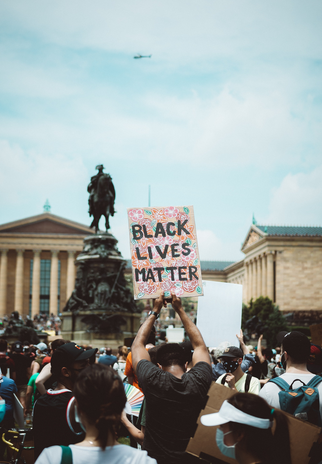Since the protests against racial injustice started this past summer, I have seen almost everyone I follow on Instagram posting on every social and political issue in the news, from sharing educational resources on racism to the consequences of having another Conservative justice on the American Supreme Court. Being politically active has become one of the defining characteristics of this generation of young people, and it has generated tangible change, like higher youth voter turnout in this presidential election.
However, there have been several prominent companies and celebrities accused of ‘virtue signalling’ since the beginning of the summer, meaning they have been accused of saying they support a cause to get attention and show that they are a good person. People who virtue signal will talk about a cause publicly but do little to help support the cause in other ways. It can be easy to fall into this trap because if you see your friends posting about an issue online, you may feel that you should be posting too, even if you don’t understand exactly what that issue is or why it matters. If you love talking about issues online but are worried that you might be virtue signalling, here are a few ways to keep your activism genuine.
1: Do offline learning
The main issue of virtue signalling is that people who take part in it do not engage with the issues they purport to care about in their private lives; they only want attention. Take racial injustice, for example. There are a number of ways you can help fight systemic racism away from social media, like donating to a fund that helps fight racism, from helping people of colour receive mental health services to combating racial disparities in the incarceration system. If you do not have the means to donate, you can set some time aside to read a book, watch some movies and TV shows or listen to a podcast that discusses racial issues in order to educate yourself. This also means being willing to have difficult conversations with others, like your friends and family, because it is just as important to discuss sensitive issues like racism with those you are closest with as it is to share your opinion publicly with your social media followers.
2: Be mindful of what you post
Perhaps the epitome of virtue signalling — or performance activism — was the black square on Instagram for #BlackoutTuesday. #BlackoutTuesday was an idea from the music industry, meant to refrain from creating or sharing any new content and instead use that time to reconnect with their own community. The rest of the Internet caught on and suddenly everyone was posting a black square. The trend became controversial, as many people were posting plain black squares with the hashtag #BlackLivesMatter. This drowned out posts with those hashtags that were posting helpful information on protests, rallies and educational resources, replacing these resources with empty gestures. Posting online can be a great way to show solidarity with causes you believe in and want others to learn about as well. But make sure you know what you are posting, if the source is trustworthy and how you post it to ensure that you are keeping the cause at the centre of your activism and not accidentally making yourself the focus.
3: Think about your own role, and why you care so much
For me, recognising humanity’s role — and my own role — in the climate change crisis is extremely distressing to think about, and I am not alone in my ‘eco-anxiety’. Sometimes I want to blame the entirety of climate change on others, and other times I feel extremely guilty for leaving a light on when I leave the house. While I know that no one person is responsible for the entire climate crisis (and there are a small group of companies that are behind a third of all carbon dioxide emissions), I have to recognise how my daily decisions affect the environment. Climate change is the mother of all depressing topics but remembering that we all have a stake in it reminds me how much I care about the issue, and that everyone is able to both contribute to and fight against climate change in their own ways. Reminding yourself why you care about the issue will help drive your decision to post online, as well as what you post and how you post. After all, virtue signalling is based around a lack of genuine care for that issue.
Ultimately, online activism is one of the most effective ways to share information, connect with others and rally around a cause without having to leave our houses. If you care about a cause, you should talk about it as publicly as you want to — just make sure your online activism is not your only activism.



